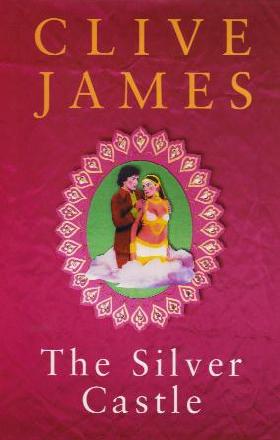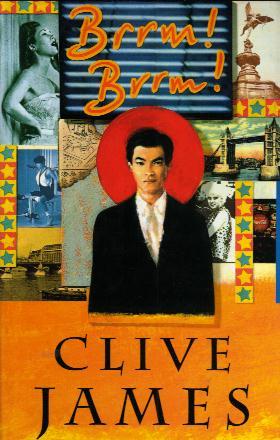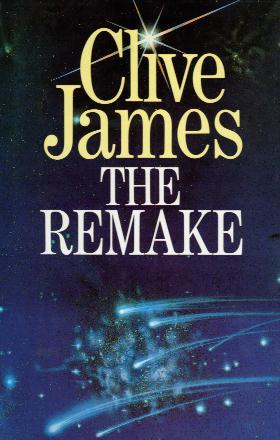The finalists for the 2010 Aurealis Awards have been
announced. These jury-judged awards were set up to honour the best Australian sf, fantasy, horror and young adult works. The finalists are:
Best Children's Fiction (told primarily through words)
Grimsdon, Deborah Abela (Random House)
Ranger's Apprentice #9: Halt's Peril, John Flanagan (Random House)
The Vulture of Sommerset, Stephen M. Giles (Pan Macmillan)
The Keepers, Lian Tanner (Allen & Unwin)
Haggis MacGregor and the Night of the Skull, Jen Storer & Gug Gordon (Penguin/Aussie Nibbles)
Best Children's Fiction (told primarily through pictures)
Night School, Isobelle Carmody & Anne Spudvilas (Viking)
Magpie, Luke Davies & Inari Kiuru (ABC Books)
The Boy and the Toy, Sonya Hartnett & Lucia Masciullo (Viking)
Precious Little, Julie Hunt, Sue Moss & Gaye Chapman (Allen & Unwin)
The Cloudchasers, David Richardson & Steven Hunt (ABC Books)
Young Adult Short Story"Inksucker", Aidan Doyle (
Worlds Next Door)
"One Story, No Refunds", Dirk Flinthart (
Shiny #6)
"A Thousand Flowers", Margo Lanagan (
Zombies Vs. Unicorns)
"Nine Times", Kaia Landelius & Tansy Rayner Roberts (
Worlds Next Door)
"An Ordinary Boy", Jen White (
The Tangled Bank)
Best Young Adult NovelMerrow, Ananda Braxton-Smith (black dog books)
Guardian of the Dead, Karen Healey (Allen & Unwin)
The Midnight Zoo, Sonya Hartnett (Penguin)
The Life of a Teenage Body‐Snatcher, Doug MacLeod (Penguin)
Behemoth, Scott Westerfeld (Penguin)
Best Illustrated Book/Graphic NovelShakespeare's Hamlet, Nicki Greenberg (Allen & Unwin)
EEEK!: Weird Australian Tales of Suspense, Jason Paulos et al (Black House Comics)
Changing Ways Book 1, Justin Randall (Gestalt)
Five Wounds: An Illustrated Novel, Jonathan Walker & Dan Hallett (Allen & Unwin)
Horrors: Great Stories of Fear and Their Creators, Rocky Wood & Glenn Chadbourne (McFarlane & Co.)
Best CollectionThe Library of Forgotten Books, Rjurik Davidson (PS Publishing)
Under Stones, Bob Franklin (Affirm Press)
Sourdough and Other Stories, Angela Slatter (Tartarus)
The Girl With No Hands, Angela Slatter (Ticonderoga)
Dead Sea Fruit, Kaaron Warren (Ticonderoga)
Best Anthology
Macabre: A Journey Through Australia's Darkest Fears, Angela Challis & Dr. Marty Young, eds. (Brimstone)
Sprawl, Alisa Krasnostein, ed. (Twelfth Planet Press)
Scenes from the Second Storey, Amanda Pillar & Pete Kempshall, eds. (Morrigan)
Godlike Machines, Jonathan Strahan, ed. (SF Book Club)
Wings of Fire, Jonathan Strahan & Marianne S. Jablon, eds. (Night Shade Books)
Best Horror Short Story"Take the Free Tour", Bob Franklin (
Under Stones)
"Her Gallant Needs", Paul Haines (
Sprawl)"The Fear", Richard Harland (
Macabre: A Journey Through Australia's Darkest Fears)
"Wasting Matilda", Robert Hood (
Zombie Apocalypse!)
"Lollo", Martin Livings (
Close Encounters of the Urban Kind)
Best Horror Novel
After the World: Gravesend, Jason Fischer (Black House Comics)
Death Most Definite, Trent Jamieson (Orbit)
Madigan Mine, Kirstyn McDermott (Pan Macmillan)
Best Fantasy Short Story"The Duke of Vertumn's Fingerling", Elizabeth Carroll (
Strange Horizons)
"Yowie", Thoraiya Dyer (
Sprawl)
"The February Dragon", L.L. Hannett & Angela Slatter (
Scary Kisses)
"All the Clowns in Clowntown," Andrew McKiernan (
Macabre: A Journey Through Australia's Darkest Fears)
"Sister, Sister", Angela Slatter (
Strange Tales III)
Best Fantasy NovelThe Silence of Medair, Andrea K Höst (self-published)
Death Most Definite, Trent Jamieson (Orbit)
Stormlord Rising, Glenda Larke (Harper Voyager)
Heart's Blood, Juliet Marillier (Pan Macmillan)
Power and Majesty, Tansy Rayner Roberts (Harper Voyager)
Best Science Fiction Short Story"The Heart of a Mouse", K.J. Bishop (
Subterranean Online Winter 2010)
"The Angaelian Apocalypse", Matthew Chrulew (
The Company Articles Of Edward Teach/The Angaelian Apocalypse)"Border Crossing," Penelope Love (
Belong)
"Interloper", Ian McHugh (
Asimov's January 2011)
"Relentless Adaptations", Tansy Rayner Roberts (
Sprawl)
Best Science Fiction Novel
Song of Scarabaeus, Sara Creasy (EOS)
Mirror Space, Marianne de Pierres (Orbit)
Transformation Space, Marianne de Pierres (Orbit)
The winners of the award will be announced on May 21, 2011 in Sydney.




